Description
african grey parrots for sale near me
When searching for African grey parrots for sale near me, it’s essential to consider why these remarkable birds are in such high demand. Known as the most intelligent of all parrot species, African grey parrots are celebrated for their extraordinary ability to mimic human speech. Many owners have reported their African grey parrots learning hundreds of words and even using them in context to engage in simple conversations. This level of interaction makes them not just pets but true companions, able to form deep emotional bonds with their owners.
However, this level of verbalization doesn’t happen overnight. Training an African grey parrot to speak and interact meaningfully takes years of patience and dedication. These birds thrive on mental stimulation, and without it, they can become bored and develop behavioral issues. This is why African grey parrots are best suited for owners who can commit significant time each day to their care and enrichment.
Despite their popularity, African grey parrots face challenges in the wild. Deforestation and illegal trapping for the pet trade have severely impacted their populations, making both species—Congo and Timneh—endangered. This adds a layer of responsibility for prospective owners to ensure they are purchasing from reputable breeders who prioritize the conservation of this magnificent species.
Physically, African grey parrots are larger than many standard pet parrots, typically ranging from 25 to 35 centimeters in length. Their size and high energy levels mean they need ample space to explore and exercise. Cage perches should be placed lower for younger birds still developing their climbing skills. Regular grooming, including nail trimming, is essential to keep them healthy and comfortable.
Diet is another crucial aspect of caring for an African grey parrot. A balanced diet should consist primarily of high-quality pellets, making up about 75% of their intake. Fresh fruits and vegetables, particularly those rich in calcium and Vitamin A, should constitute 20-25% of their diet. Seed-based diets are generally discouraged as they allow selective feeding, leading to nutritional imbalances. Treats should be limited to no more than 5% of their daily food intake, and clean, fresh water should always be available.

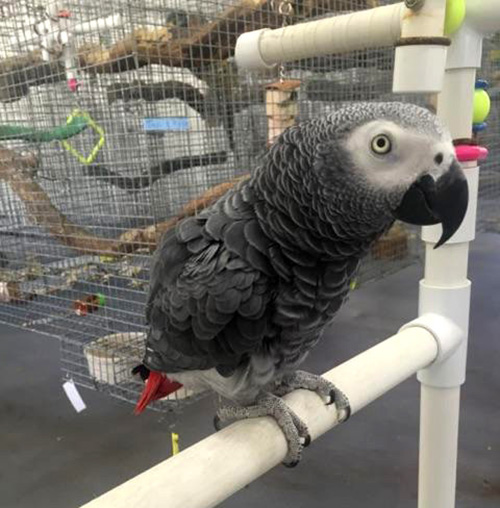
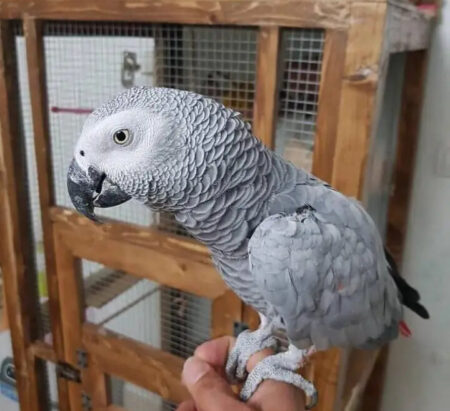
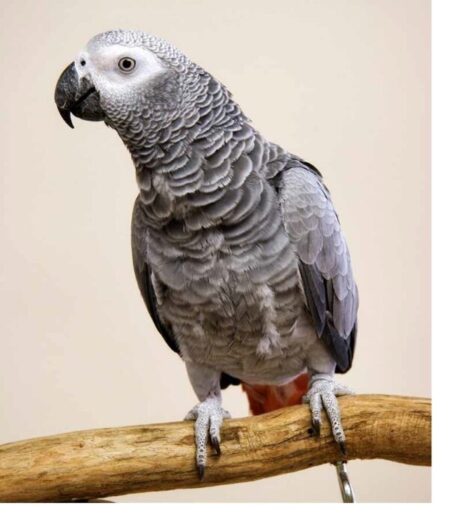
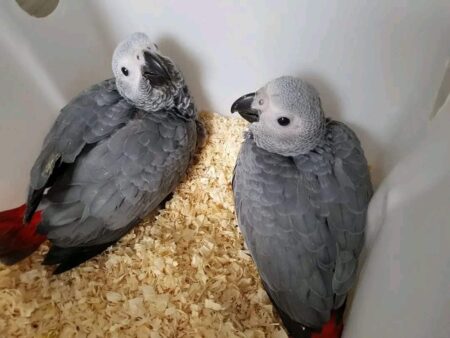
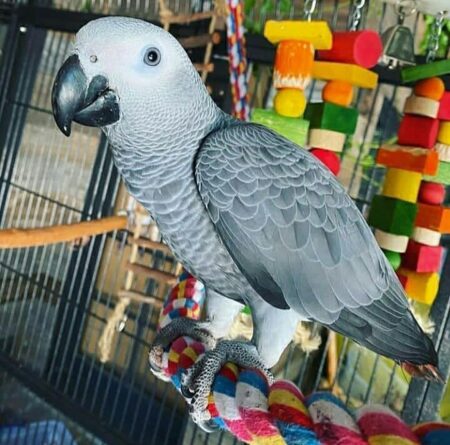
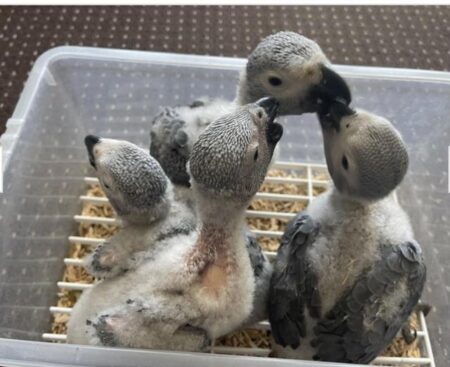
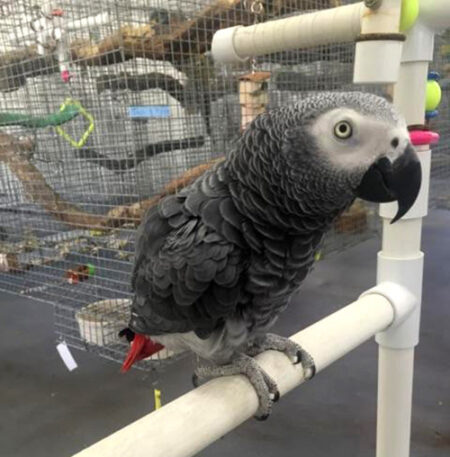
Reviews
There are no reviews yet.